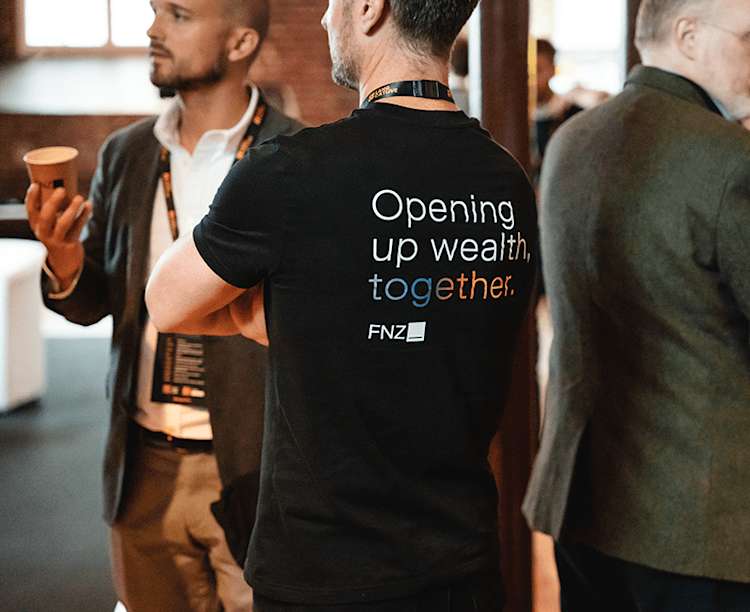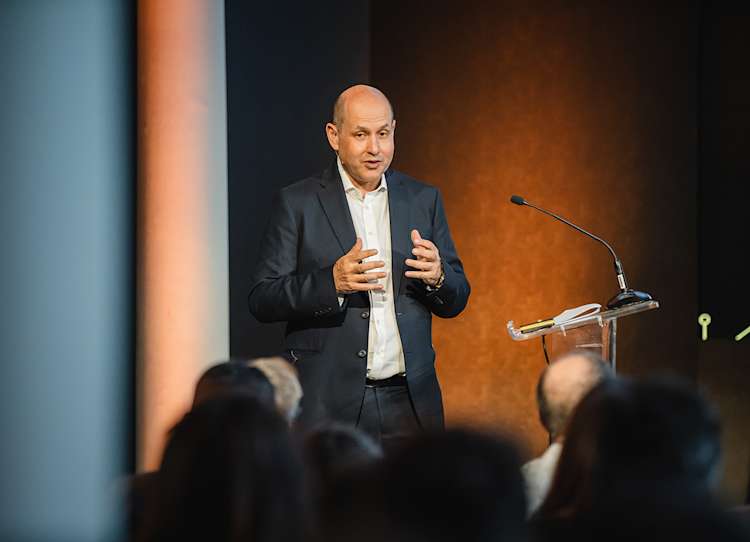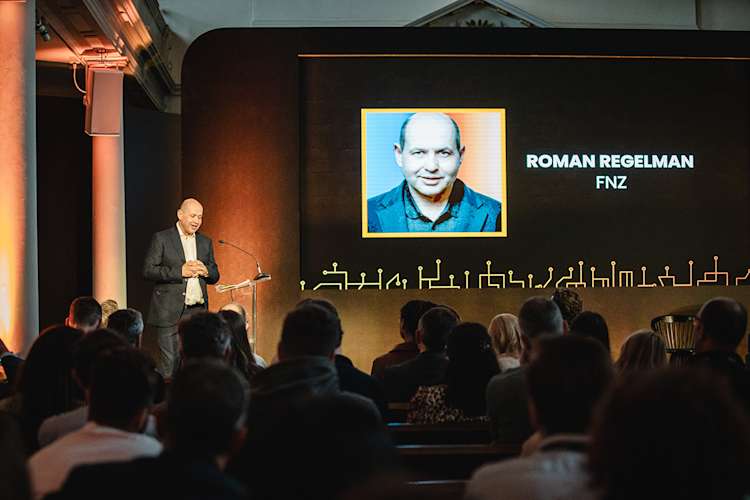Advice, Regulation and the UK’s Role in Fintech
Speaking at the Lang Cat AdviceTech Forum was a genuine privilege. There was a clear sense of momentum in the room, a shared belief that we are building something better. Smarter. More inclusive.
The firms presenting that day brought forward practical, creative solutions to real problems, and the discussions reflected a collective ambition to move the industry forward. What struck me most was the alignment around purpose. Everyone in the room was working toward a future where advice is not only more scalable and more personalised, but also more accessible to the people who need it most.
That ambition — to widen access and improve outcomes — is at the heart of our mission at FNZ. We call it opening up wealth, and it’s the principle behind everything we do.

Fintech Leadership, with a Mission
There’s a reason this event took place in the UK. The country continues to play a major role in the global fintech ecosystem. That’s not just down to capital markets or talent. It’s the result of deep financial expertise, strong infrastructure, and a culture that supports innovation.
That said, fintech leadership today is shared. The US, Southeast Asia, and the Middle East are making huge investments in digital transformation. We’re seeing impressive innovation across the board.
So is the UK still a fintech leader? I believe it is. But keeping that position means staying focused on innovation, moving with agility, and thinking globally.
One area where the UK stands out is regulation. Tools like the FCA’s Regulatory Sandbox and the Advice Unit are internationally recognised. They support responsible innovation and give firms space to experiment, while also maintaining public trust. That balance is crucial for lasting impact.
That is helping to open up wealth, accelerate innovation, and drive real change. At FNZ, we believe that strong regulation and meaningful innovation are not in conflict. In fact, they reinforce each other. A well-regulated environment helps to build trust, protect consumers, and enable sustainable growth. That is the foundation for long-term progress in this industry — and why the UK still matters on the global stage.
But while regulation and innovation help shape the landscape, we can’t lose sight of a deeper issue: the fact that advice itself is still not equally accessible to everyone.

The Advice Gap: A Challenge We Can’t Ignore
One of the most pressing issues we face is access to advice. According to the Lang Cat’s recent Advice Gap report:
Just 9% of consumers have paid for financial advice in the past two years, down from 11% in 2023
91% of those who have paid for advice found it helpful
So this isn’t about demand. It’s about access. Too many people are priced out or left out, and that needs to change.
The good news is that we already have the technology to solve this. By rethinking how advice is delivered, we can reduce costs, scale personalisation, and significantly increase reach.
At FNZ, opening up wealth means building the infrastructure to support that change. We’re helping advisers, institutions, and innovators serve more people in more meaningful ways.
Delivering on that promise also means reimagining the relationship between clients and the firms that serve them — and that’s where the shift to C2B becomes critical.
C2B: A Shift in How We Serve Clients
We often frame financial services as either B2B or B2C. But I believe we’re entering a new era — one that doesn’t fit neatly into either category. I call it C2B: customer to business.
This shift changes the model completely. The individual is no longer just a recipient of services. They’re the starting point. Their goals, life stage, values, and preferences should inform every decision.
Clients today expect advice that is personal, responsive, and delivered through seamless experiences — both digital and human. And they’re right to expect it.
C2B means reorienting business models around the customer’s world, not the company’s structure. It’s about empowering people to drive their own financial journey, with the guidance and support they need along the way.
At FNZ, we’ve built the infrastructure to make this shift possible. Our platform connects every part of the advice lifecycle, from onboarding and goal setting to investment management and servicing. It brings together the data, intelligence, and workflow required to deliver truly personalised advice — and to do so at scale.
It’s scalable personalisation, not mass customisation. This is also central to our mission at FNZ: to open up wealth. We’re helping firms make high-quality, affordable advice accessible to more people, not just the wealthy few.
This shift doesn’t only improve the client experience. It also helps firms operate more efficiently, make smarter decisions, and build long-term resilience.
The firms that lead with this mindset — that build client-centricity into the foundations of their operations — will be the ones to define the future of advice.
And while the ideas powering C2B are already in motion, what gives me real confidence is the industry-wide commitment to innovation with purpose.

Innovation in Motion
What stood out most at the Lang Cat Forum wasn’t just the technology. It was the sense of shared direction.
Across every conversation, the message was consistent: innovation should be purposeful. It’s not about digital for digital’s sake — it’s about solving the real challenges of advice: cost, complexity, and access.
That kind of clarity gives me confidence. With the right collaboration between fintechs, advisers, and platforms, we can move further and faster than ever before.
And that confidence is well-placed, because what’s next will demand even more from all of us — more ambition, more leadership, and a clear-eyed view of how regulation, technology, and trust must evolve together.
Looking Ahead
This is a pivotal moment for the advice industry. Regulation is evolving. AI is accelerating. Expectations are rising.
The technology is here. Now it’s about ambition.
At FNZ, we believe the future lies in combining technologies like AI with human intelligence — enhancing advisers, not replacing them — and delivering advice that’s more personal, scalable and accessible.
In wealth, the magic formula is trust and innovation. You need both. One without the other doesn’t work.
That’s what opening up wealth means to us. And we’re just getting started.
Roman Regelman
Group President
